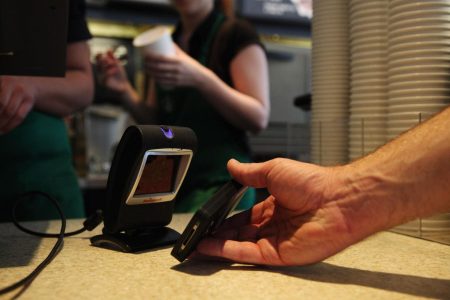Ethereum
ETH
What’s A Wallet For?
I am hardly alone in the view that financial services players need to develop sound wallet strategies as a matter of urgency and they can begin by getting rid of the notion that wallets are about payments. They are not. I share Tom Noyes’ perspective: Wallets will be the centre of consumer trust and interaction with the wider world and, indeed, the pivot between the real and virtual worlds. But what will be in those mass-market population-scale digital wallets that will be so central to work, rest and play in the not-too-distant future?
Well-known payments expert Richard Crone, another person I always pay attention to, wrote recently that the real value of a digital wallet lies not in its ability to manage payments but as as platform to “leveraging verified federated identity” and that such a platform will use AI to deliver new services. In fact, I might even go further and say that the most successful wallets will be used by agents more than by people and therefore add something about APIs to the description, but you get the general point.
(I’m a firm proponent of the idea that instead of wasting money trying to educate consumers about finance, it’s better to give them robots to control their finances for them.)
Smart wallets will, then, have considerable utility. But they may be even more important than payment devices, money managers and digital drivers licence containers. As Kaliya Young and Lucy Yang say, smart wallets are going to play an important role in an organization’s relationships and interactions with their customers and the consumer applications that leverage digital wallets be another channel. In common with many other people (eg, Jamie Smith) I would push even further and say that this other channel will become key to business and Jamie’s view of the digital wallet as safe channel connecting the brand and customers seems a good way forward. A portable connection that is more secure than SMS, smarter than email and more secure, private and more portable than mobile apps. This view, of wallets as an evolution beyond the web and mobile apps, suggests an evolution that will disrupt customer engagement completely.
If service providers, brands and other organisations are given a channel to consumers that has confidentiality and integrity built in, it could really change the landscape because the current environment is unsustainable. Just look at this one (superbly well written) story of a consumer losing tens of thousands to a Zelle fraudster because there was no away of knowing whether the contractor they were sending money to was actually the real contractor or not. It is unreasonable to expect consumers to become experts in computer security, cryptography and digital signatures. We need to get to the point when a message shows up in my (lets say) bank wallet saying “please can you confirm $10,000 to Joey Donuts Pools” I can be request the message really did come from Joey Donuts Pools via my bank and the money really is going to Joey Donuts Pools without having to do anything at all because if the message didn’t really come from Joey Donuts Pools then it would never show up in my bank wallet at all.
Channels And Consumers
The secure channel between business and consumers, the AI-driven financial manager and the convenient pivot between real and virtual. Smart wallets are going to be huge and we already have all of the technology we need to make them work. We have secure elements and digital signatures, we have encryption and strong authentication, we have smart phones and accounts packages. Any bot worth its salt should be able to relieve me of the burden of dealing with Joey Donuts* invoices and payments at all.
(There’s another aspect to this move to smart wallets that is just as important as security, by the way, and that is privacy. If consumers do indeed shift to manage their digital identity through credentials in digital wallets then technologies such as Zero-Knowledge Proofs can come into play to deliver a wholly new level of privacy, more suited to the new age, but that’s something to explore another time.)
Digital wallets are the leading e-commerce payment method globally, accounting for half of global transaction value and given that the total value of digital wallet transactions is predicted to rise from $9 trillion in 2023 to some $16 trillion in 2028 (a growth of 77%) I would think that most financial services organisations are working hard to develop their wallet strategies. If they are not, it may already be too late.
Read the full article here















